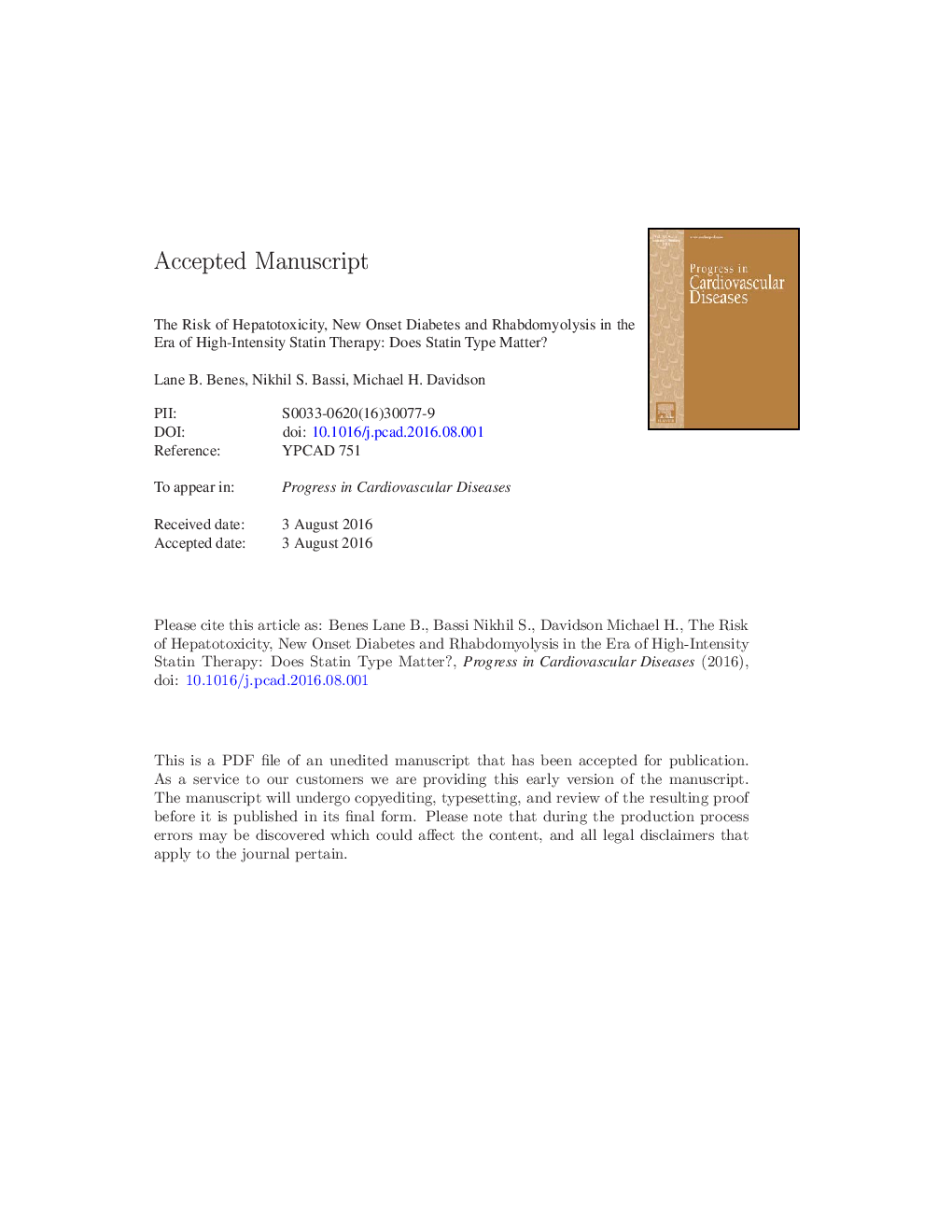| Article ID | Journal | Published Year | Pages | File Type |
|---|---|---|---|---|
| 5619642 | Progress in Cardiovascular Diseases | 2016 | 30 Pages |
Abstract
The 2013 American College of Cardiology/American Heart Association guidelines on cholesterol management have placed greater emphasis on high-intensity statin dosing for those with known cardiovascular disease or diabetes mellitus. Differences in risk of hepatotoxicity, new onset diabetes and rhabdomyolysis specifically between the high-intensity statins and the most common moderate-intensity statin, simvastatin, were not found to a significant degree in this review. Rather, baseline characteristics and drug-drug interactions (DDIs) appear to be more important regarding the risk of these adverse effects. Pharmacogenetic differences in statin metabolism may explain individual susceptibility, however genetic testing is not felt to be cost effective at this time. More importantly, statin choice should consider concomitant use of the many prevalent CYP3A4 inhibitors or inducers, and when present, rosuvastatin selection is recommended to reduce DDIs and risk of statin-induced adverse effects.
Keywords
ABCASCVDNODLFTDDILiver function testsDrug-induced liver injuryAdverse effectsStatincardiovascular diseaseAtherosclerotic cardiovascular diseaseDrug–drug interactionsOatorganic anion transporterDiabetes mellitusDILICVDPharmacogeneticscardiovascularGenome-wide association studiesGWASCreatinine kinaseATP-binding cassette
Related Topics
Health Sciences
Medicine and Dentistry
Cardiology and Cardiovascular Medicine
Authors
Lane B. Benes, Nikhil S. Bassi, Michael H. Davidson,
